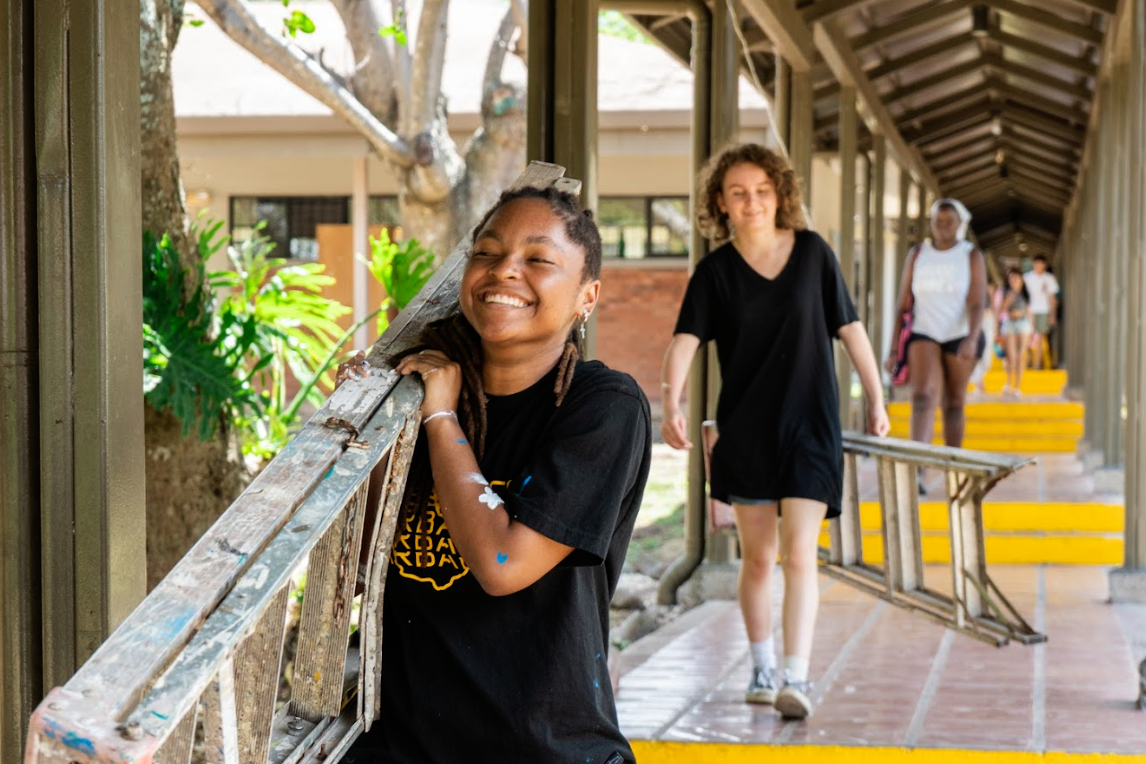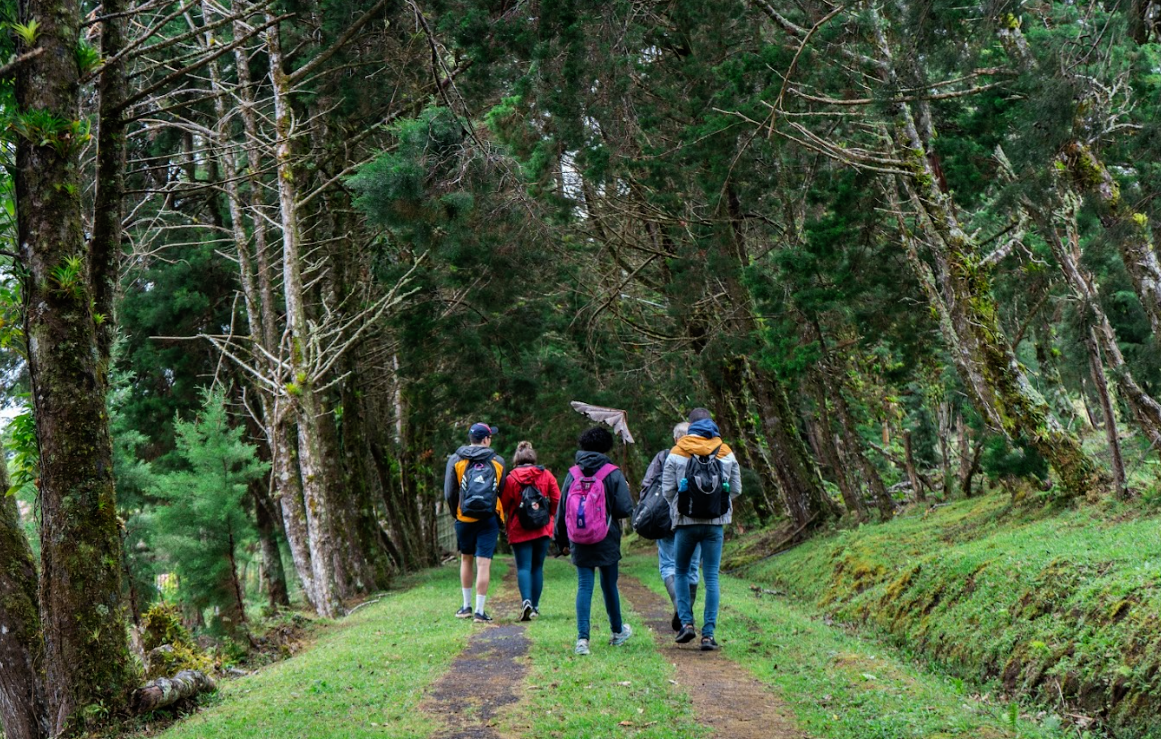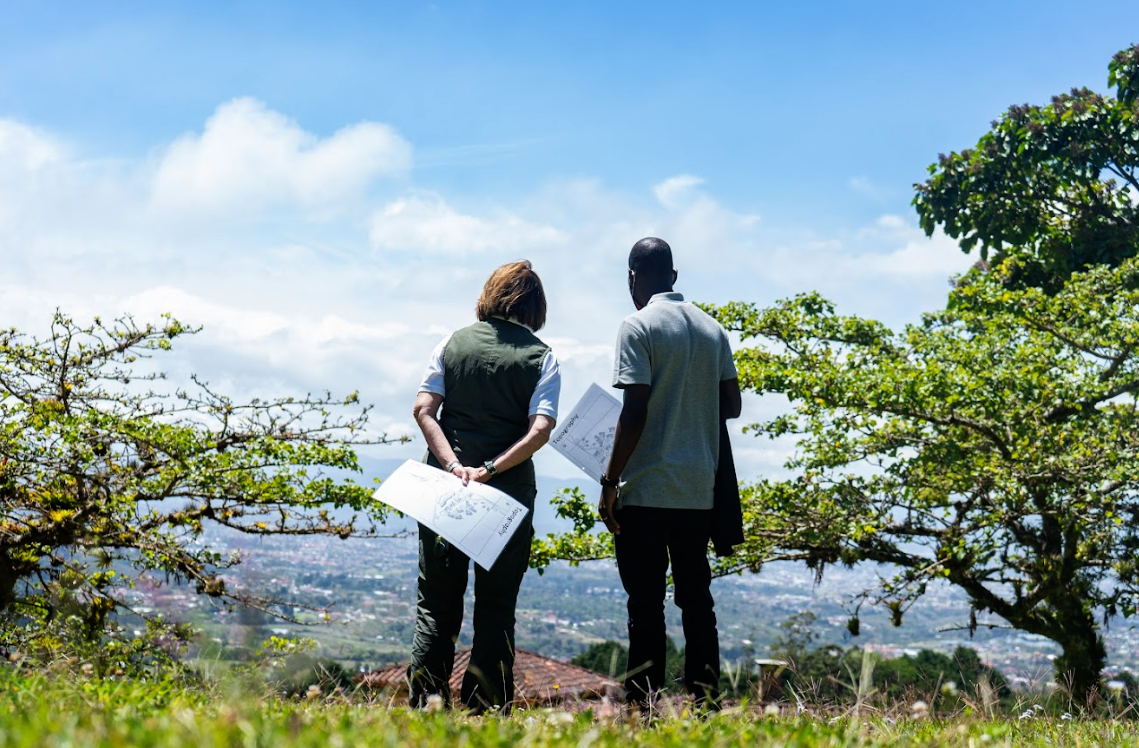Educating for a Sustainable Future
.jpg)
UWC Costa Rica's Sustainability Framework
What happens when you hear the word ‘sustainability’? Perhaps it makes you think of climate change, or the need to take positive action to support the environment, such as recycling or cutting our carbon footprint. It’s a word that elicits all kinds of responses. And for UWCers it also holds special resonance since it was incorporated into our mission statement in the early 21st century.
 At UWC Costa Rica, the team has chosen to build on this foundation with the launch of a landmark sustainability framework. Central to the framework is the concept of reciprocity, which Jeff Norris, IB Biology Teacher and former Sustainability Coordinator, explains: “The concept of reciprocity is deeply rooted in indigenous ways of knowing, based on experience, observation, experimentation, but also invokes a somewhat spiritual component or kinship. Humans are part of nature.”
At UWC Costa Rica, the team has chosen to build on this foundation with the launch of a landmark sustainability framework. Central to the framework is the concept of reciprocity, which Jeff Norris, IB Biology Teacher and former Sustainability Coordinator, explains: “The concept of reciprocity is deeply rooted in indigenous ways of knowing, based on experience, observation, experimentation, but also invokes a somewhat spiritual component or kinship. Humans are part of nature.”
Another central theme is an attempt to embed a culture at the college geared towards systemic thinking and change. Arguably, the same structures which took us to climate and ecological breakdown in the first place are poorly suited to get us out of it. ‘Systems change, not climate change’ is a mantra often quoted by UWC Costa Rica’s Head of School, Mauricio Viales, a point he made at UWC’s 60th anniversary event in September 2022. “We need to push for systemic thinking and change,” Mauricio urged. “We know we need to focus on equity and inclusivity, promoting multiple voices and looking towards ecological, ancestral, indigenous, feminist, and local wisdom as sources for learning and being.”
The college has come up with eight guiding principles for its innovative new framework: Care; Nature; Education; Community & Diversity; Social Justice & Governance; Reciprocity & Continuity; Impact & Economy; and Responsible Use & Resources. The principles sit across five areas - or ‘action lines’ - which it hopes will help transform the culture at UWC Costa Rica, and put sustainability at the heart of everything it does (the framework played a central role in steering the college’s new five-year strategic plan).
|
The college has paid tribute to the significant influence of others in the UWC movement, including UWC Robert Bosch College’s Sustainability Coordinators Tobi Kellner and Kristin Kaschner. They are currently working on a website which consolidates and communicates sustainability actions across the movement. UWC Costa Rica’s own Sustainability Coordinator, Sofia Quirós, explains: “Tobi and Kristin have really helped to galvanise the movement on this issue. By bringing other UWC schools together, they’ve helped to spark some incredibly useful conversations across the UWC network, including here in Costa Rica. It has underlined how important it is that we continue to collaborate with one another.”

This sentiment was echoed at UWC’s 60th anniversary event in September by UWC International Board Chair Musimbi Kanyoro, when School Heads and Chairs met to discuss sustainability. “Change can only happen locally, but its impact is stronger if we work collectively,” said Musimbi.
Jose Pablo Rojas-Brewer (UWC-USA 2004-2006), Development Director at UWC Costa Rica, believes the framework, and the fact it cuts across all aspects of college life, has made a big difference to the impact they’ve had so far. “The new framework has given us the governance to focus on sustainability and move away from words and pledges to concrete action,” says Jose Pablo.
Sofia Quirós adds:
"“The word ‘sustainability’ has become overused in recent years. This is why the concept of reciprocity, rooting ourselves in ancestral knowledge and ways of being, plays such an important part in the college’s approach.”
The framework is also the driving force behind UWC Costa Rica’s plans to open a new campus in 2025, which is next to Braulio Carrillo National Park - the second-largest national park in the country. According to Mauricio, the new construction will ensure a regenerative and responsible impact on surrounding communities and ecosystems. In keeping with the cross-cutting nature of the framework, it will also provide education opportunities as the campus is developed, and create partnership opportunities with local agents. In a country that prides itself on its work to tackle the climate and ecological crisis, UWC Costa Rica also hopes the new and innovative sustainability systems will serve as a model for other Latin American schools.
 The college will soon begin to evaluate the impact of the new framework so far, and hopes to then expand it to the whole community, including its admissions and staff recruitment processes. Jose Pablo Rojas-Brewer explains: “We want to cultivate a different mindset around sustainability throughout the college community. The framework is completely shifting our approach to education, and we hope soon will shape the way we recruit staff and students too.”
The college will soon begin to evaluate the impact of the new framework so far, and hopes to then expand it to the whole community, including its admissions and staff recruitment processes. Jose Pablo Rojas-Brewer explains: “We want to cultivate a different mindset around sustainability throughout the college community. The framework is completely shifting our approach to education, and we hope soon will shape the way we recruit staff and students too.”
“The transition to a culture of sustainability begins now,” adds Sofia.
The 2020s may prove to be a crucial decade for humanity’s relationship with the planet it inhabits. Perhaps this underlines even more the significance of reciprocity playing such a central role in UWC Costa Rica’s vision. While each UWC will continue to cultivate its own approach to tackling climate and ecological breakdown, we can only hope that the shared knowledge across the movement can influence the agenda in an immeasurable way.
